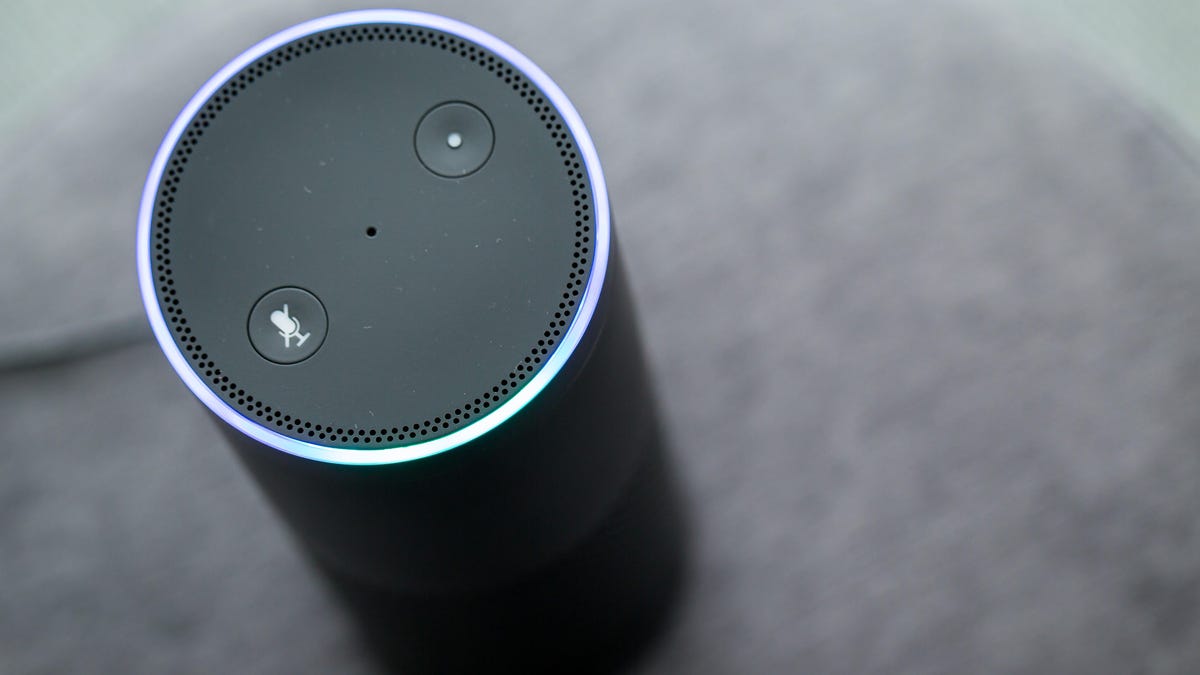We are chatting up Amazon's Alexa and Apple's Siri a lot more
A new survey from Adobe shows that people are warming to Alexa and Siri.

Talk to the Amazon Echo Plus smart speaker.
The popularity of voice assistants may be at about to pick up.
An Adobe survey released on Monday found that people's use of voice assistants, such as Amazon's Alexa and Apple's Siri, is growing, thanks largely to more folks buying smart speakers.
According to the survey of 1,000 US adults, which was conducted in August, a total of 76 percent of smart speaker owners said their use of voice assistants has grown in the past year. Among folks who don't own a smart speaker, 38 percent said their use of voice assistants also grew, thanks to digital assistants now being housed in phones, laptops and cars.
People use voice assistants more, especially if they own a smart speaker.
Among smart speaker owners, 71 percent said they chat with their voice assistants at least once a day.
The data suggests a bright future for voice assistants as more people jump into the conversation with these digital helpers and buy smart speakers made by Amazon, Google and Apple. That should help these companies gain a place in people's lives, and give tech giants an opportunity to pull in valuable user information and sell more stuff through voice shopping.
Currently, the big winner in voice computing is Amazon, whose Echo devices currently lead in US smart speaker sales. The Google Home speaker is second and Apple's HomePod a distant third. Samsung is joining the fray, too, with the introduction of its Galaxy Home smart speaker.
There are obvious challenges to more people using voice assistants. Voice computing is still new, so Alexa, Siri and Google Assistant often respond to questions the wrong way or need to my asked multiple times. Also, some people remain hesitant about putting smart speakers and their arrays of microphones in their homes.
Though most people don't currently own a smart speaker, adoption is growing. Adobe said 32 percent of the people surveyed owned one, up from 28 percent in its January survey. The company expects nearly 50 percent of US residents to own a smart speaker after the holiday season, when sales of the devices typically spike.
One area that hasn't been gaining much traction has been voice shopping. Adobe said just 25 percent of smart speaker owners use the device to place home-delivery orders. Re-ordering and placing orders for in-store pickup fared even worse.
How people are using their smart speakers: lots of music, not much shopping.
Adobe said that smart speakers appeared to be more useful for initial research and creating shopping lists. "Even though people aren't buying directly, it's helping them buy later," an Adobe spokesman said.
The most popular use for smart speakers continues to be basic functions, such as playing music, checking the weather and setting alarms. More complex features weren't nearly as popular. In all, 31 percent of smart speaker owners used the devices for smart-home commands, 13 percent use them to manage finances and 16 percent use them for hotel or flight research.
'Hello, humans': Google's Duplex could make Assistant the most lifelike AI yet.
The Honeymoon is Over: Everything you need to know about why tech is under Washington's microscope.

